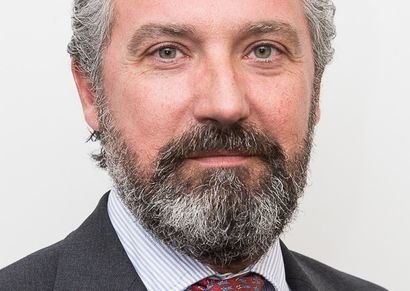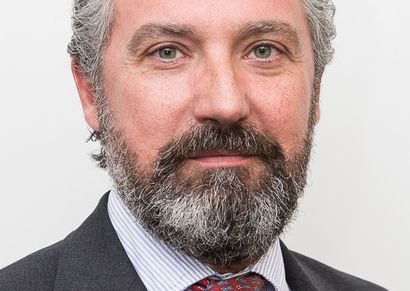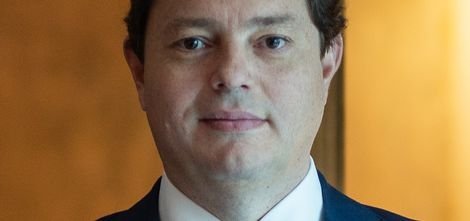Coming of age?

Dentons, the world’s largest law firm has, so far, had a relatively small presence in Spain, but now the firm is gearing up to take on the biggest players in the market
by Juan Fernández-Castaño Riancho
 Dentons is yet to truly flex its muscles in the Spanish market. Despite being the world’s largest law firm by lawyer numbers, it has kept a relatively low profile in Madrid up to now. But change is afoot. New Spain managing partner Jesús Varela (pictured), who assumed the role in February this year, has ambitious plans to elevate the firm to a position where it is viewed as one of the major players in the Spanish market. A key part of the strategy involves dramatically increasing the amount of lawyers the firm has in Spain – it currently has a total of 61 lawyers in its Madrid and Barcelona offices, but the firm wants to grow to 150 lawyers in the near future. The seriousness of this plan is demonstrated by the fact that the firm has already taken out a lease on two more floors in the building where it is currently housed on Madrid’s Paseo de la Castellana. Jesús Varela is clear that the time has come for Dentons go head-to-head with the giants of the Spanish legal sector. In addition to being intelligent and open with a very pIeasant manner, Varela is obviously a very ambitious managing partner. He knows that, in order to truly compete with the heavyweights of the Spanish market, it is essential that the firm grows in size. “We don’t want to be an international firm that goes unnoticed or functions like the local office,” he says. “In order to become a powerhouse in the Spanish legal market, we want to reach 150 lawyers in the medium term.” Such size is necessary to really compete with the top firms, he says. However, Varela says it is not a case of merely growing for the sake of growing. The objective is strategic growth, focussed on areas or sectors in which Dentons is very strong at an international level. “We are very powerful in real estate, restructuring and insolvency, energy, life sciences and new technologies,” Varela argues. “These are the areas that are driving growth, and that growth must be maximised.”
Dentons is yet to truly flex its muscles in the Spanish market. Despite being the world’s largest law firm by lawyer numbers, it has kept a relatively low profile in Madrid up to now. But change is afoot. New Spain managing partner Jesús Varela (pictured), who assumed the role in February this year, has ambitious plans to elevate the firm to a position where it is viewed as one of the major players in the Spanish market. A key part of the strategy involves dramatically increasing the amount of lawyers the firm has in Spain – it currently has a total of 61 lawyers in its Madrid and Barcelona offices, but the firm wants to grow to 150 lawyers in the near future. The seriousness of this plan is demonstrated by the fact that the firm has already taken out a lease on two more floors in the building where it is currently housed on Madrid’s Paseo de la Castellana. Jesús Varela is clear that the time has come for Dentons go head-to-head with the giants of the Spanish legal sector. In addition to being intelligent and open with a very pIeasant manner, Varela is obviously a very ambitious managing partner. He knows that, in order to truly compete with the heavyweights of the Spanish market, it is essential that the firm grows in size. “We don’t want to be an international firm that goes unnoticed or functions like the local office,” he says. “In order to become a powerhouse in the Spanish legal market, we want to reach 150 lawyers in the medium term.” Such size is necessary to really compete with the top firms, he says. However, Varela says it is not a case of merely growing for the sake of growing. The objective is strategic growth, focussed on areas or sectors in which Dentons is very strong at an international level. “We are very powerful in real estate, restructuring and insolvency, energy, life sciences and new technologies,” Varela argues. “These are the areas that are driving growth, and that growth must be maximised.”
LOOKING FOR TALENT
Varela says that any hiring that is done will be considered carefully and that there will not be massive amounts of recruitment in the first phase of growth. The firm is currently in talks with lawyers at rival firms with a view to making lateral hires. Varela says: “We have three or four [hiring] processes that have been launched very strategically in order to bring us certain teams that we believe we already need in this first phase of growth.” Varela insists that a lot of time must be dedicated to the process of recruitment, and that it is work that demands “a lot of dedication and effort because we are contacting people recognised in the market”. He continues: “We have to offer something more attractive than what they have now and I think we are achieving it, because the processes [we are involved in] are advanced”. Given that the Spanish market is very mature, Varela says it is vital that firms looking to enter it ensure there is a gap in the market for them to fill. As a result, he argues that firms need to adopt a business model that allows them to be competitive – this means either being a local boutique with local prestige, or having a true international presence, “which is what we have,” he says. In a market in which there is also, arguably, an excessive amount of lawyers, Varela says, such differentiation will be key to the future success of firms. “We differentiate ourselves by our international character,” he says. “We work with investors and companies from many places that do business in Spain, and that is a differentiating factor – but in terms of the local market, it is very consolidated.” There has been a lot of talk about the possible arrival of more US firms in the Spanish market. Varela finds this somewhat surprising given they do not, in his view, have a differentiating factor. Names like Kirkland & Ellis, Norton Rose and Shearman & Sterling have been circulating the market for months. Varela says it would be surprising if such firms chose this time to enter the Spanish market. Why? The reason, says Varela, is that “we are not in a moment when the market has broken down, it is very mature”. The market is not currently offering the opportunities it was offering in 2012, for example, explains Varela. He adds that, at that time, certain major clients left Spain, but new clients took their place that had no established relationship with a law firm in Spain. “They would come here, sit with you and if you were more or less credible they would give you business,” Varela says. “You couldn’t say that anyone was a particular firm’s client – that’s when the market breaks and that’s when you can go in.”
ENVIRONMENTAL PLANNING
Varela claims that in areas such as energy and the environment, Dentons is already ahead of rival firms in the Spanish market. “Environment is a sector that is going to be decisive,” he says. “In the Madrid office we have an environmental partner, Daniel Vázquez, and that practice is key – I don’t rule out seeing significant growth in that area in the coming months.”
To read the article in full please download issue N.88 here












